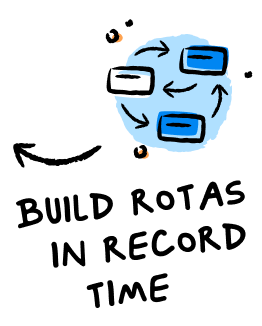Staff availability
Staff or employee availability refers to the number of staff who are free and able to work at a given time, and is of great importance to managers and business owners when planning the work roster.
In the past, it was common for staff to have their shifts dictated to them and were expected to turn up for whatever shifts they were given. In today’s competitive job market, however, employers are expected to be slightly more accommodating of their employees’ availability as a way of offering a better employee experience — and becoming a more attractive employer as a result.
Employee availability is usually influenced by external factors such as:
- Parental responsibilities. Childcare can be expensive, and isn’t always available for those working less sociable hours.
- Responsibilities as a carer. Some employees may have an ongoing responsibility to look after a relative, making it difficult for them to change their work schedule at short notice.
- Reliance of public transport. It can be hard for staff who rely on buses or trains to reach work in time for early shifts or to return home safely late at night.
- Education commitments. Employees who are enrolled in full-time education often have to put their class timetable before their working hours, and are less able to be flexible when it comes to the hours they can work.
- Mental and physical health. Some staff may struggle to work long hours or during particular times of day due to ongoing health issues.
Planning shifts around employees’ availability — especially without a streamlined process for staff to communicate when they are and aren’t available to work — can be difficult and time-consuming.
Employers who make use of people management software like RotaCloud, however, can invite their team to communicate their working availability in advance, and are able to see when their employees are free to work as they begin planning upcoming staff rotas, saving them hours of admin and reducing the need for revisions to the rota after it’s shared with the team.
